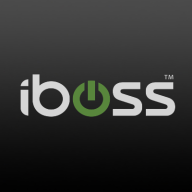


Google BeyondCorp Remote Access and Zscaler Zero Trust Exchange Platform are two leading contenders in zero-trust security solutions. Google BeyondCorp is often favored for its pricing and support, while Zscaler is recognized for its comprehensive features that might make it a preferable option for extensive security needs.
Features: Google BeyondCorp Remote Access integrates smoothly with Google's cloud offerings, boosting remote work efficiency and providing top-notch threat detection. It values simplicity and ease of use, making it suitable for businesses desiring straightforward operations. Zscaler Zero Trust Exchange Platform excels with its deep threat protection and traffic inspection designed for all devices and locations. With its extensive security controls, Zscaler is tailored for organizations requiring detailed security measures.
Ease of Deployment and Customer Service: Google BeyondCorp’s deployment is relatively simple, aided by an intuitive setup and responsive customer support that enhances user satisfaction. Zscaler Zero Trust Exchange, although offering advanced functionalities, may require more elaborate configurations. Nevertheless, its service teams provide dedicated assistance throughout the deployment process, catering to organizations with complex needs.
Pricing and ROI: Google BeyondCorp Remote Access is viewed as a cost-effective option providing quick ROI through transparent competitive pricing and efficient resource usage. In contrast, Zscaler Zero Trust Exchange Platform might entail higher upfront costs but ensures substantial long-term ROI by delivering expansive feature sets that minimize risk and bolster security. Google BeyondCorp attracts budget-conscious clients, while Zscaler appeals to those ready to invest in extensive security.


iboss offers a comprehensive security platform designed for diverse use cases such as web filtering, data loss protection, corporate proxy services, and URL filtering.
iboss integrates advanced features to address dynamic security needs, leveraging its strength in SASE, ZTNA, AI initiatives, and cloud integration, while ensuring seamless operations for remote work. It excels in historical forensics, malware protection, and flexible cloud deployments. Users benefit from comprehensive traffic scanning, robust malware detection, and PaaS capabilities that reduce hardware management. An intuitive admin console ensures efficient management with content filtering and low false positives. SSL decryption enhances security, while DLP protects data in AI conversations. Deployment is rapid and scalable, allowing effortless integration with emerging technologies.
What features does iboss offer?
What benefits and ROI should users consider?
iboss finds significant application in sectors such as education, where web filtering for K-12 is crucial, and in corporate environments requiring robust proxy services and URL filtering for network security. Its adaptability is essential in scenarios demanding flexible, decentralized security frameworks, particularly for remote work setups.
Google BeyondCorp Remote Access is a secure solution that enables organizations to provide remote access to their internal resources without the need for a traditional VPN. The primary use case for this product is to allow employees to securely access company resources from anywhere, ensuring productivity and flexibility.
The most valuable functionality of Google BeyondCorp Remote Access is its zero-trust approach. It verifies every user and device attempting to connect, irrespective of their location, ensuring only authorized users gain access to resources. This eliminates the need for complex VPN configurations and reduces the risk of unauthorized access.
By adopting Google BeyondCorp Remote Access, organizations can enhance their security posture and simplify access management. It provides granular control over user access, allowing administrators to set policies based on device health, user context, and other attributes. This reduces the attack surface and minimizes the risk of data breaches or unauthorized access to sensitive information. Furthermore, the product integrates seamlessly with other Google Cloud services, making it easy to manage and scale as per organizational requirements.
Zscaler Zero Trust Exchange Platform acts as a VPN alternative for secure remote access, cloud protection, and zero-trust strategies. It enables secure data transmission, supports remote work, and enhances compliance through a cloud-based architecture, offering improved performance and simplified management.
Designed for organizations seeking secure application access and robust data protection, Zscaler Zero Trust Exchange Platform delivers a comprehensive solution through seamless VPN connectivity, data loss prevention, and SSL inspection. Its cloud integration ensures scalability and reliability, while its interface provides intuitive management. Companies benefit from automatic secure access, minimizing constant authentication needs, and safeguarding sensitive data. The platform allows easy deployment and integration with diverse identity providers, granting granular control for access and application segmentation. Despite powerful capabilities, enhancements are needed in speed, bandwidth, and legacy support, with users noting interface and configuration challenges.
What are the key features of Zscaler Zero Trust Exchange Platform?In specific industries, Zscaler Zero Trust Exchange has been implemented to enhance security protocols in fields like finance and healthcare. By prioritizing data protection and compliance, it assists companies in safely managing sensitive information and meeting regulatory requirements. Organizations leverage its features to ensure secure operations across remote and cloud environments, adapting to industry-specific needs with customizable access and security controls.
We monitor all ZTNA as a Service reviews to prevent fraudulent reviews and keep review quality high. We do not post reviews by company employees or direct competitors. We validate each review for authenticity via cross-reference with LinkedIn, and personal follow-up with the reviewer when necessary.